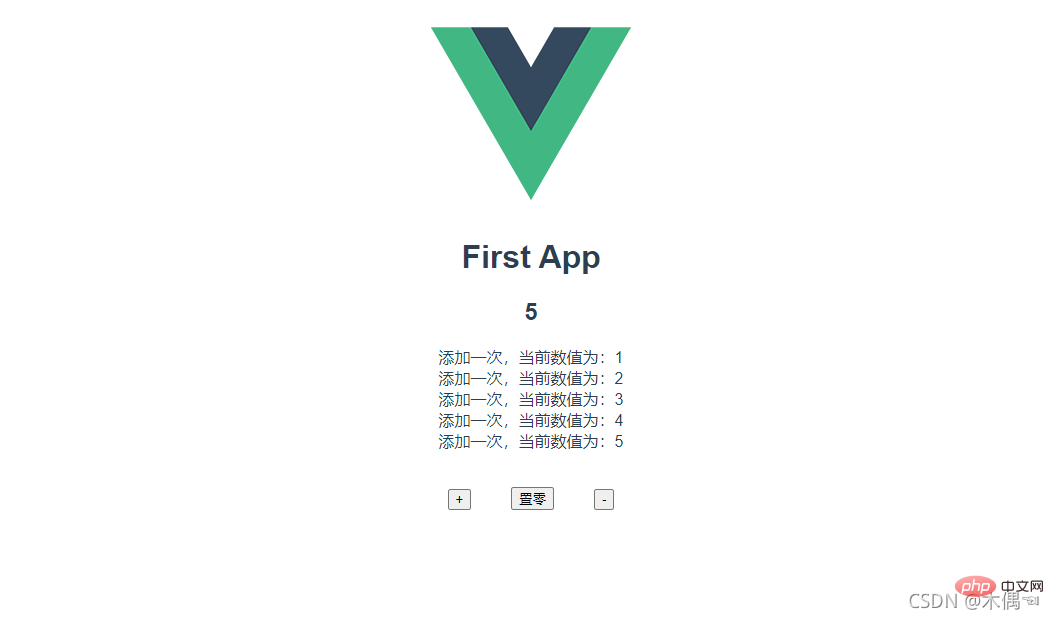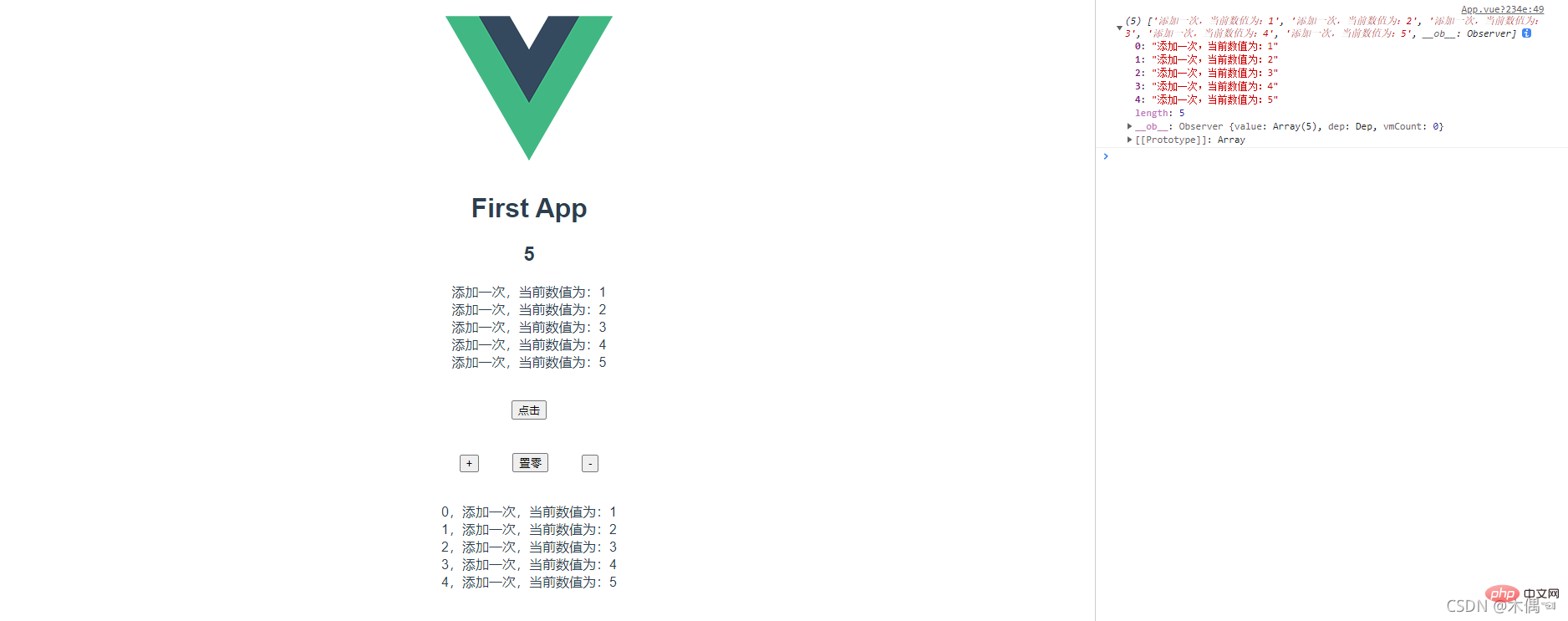 Web Front-end
Web Front-end
 Vue.js
Vue.js
 An article briefly analyzing the problem of value transfer between parent and child components in Vue
An article briefly analyzing the problem of value transfer between parent and child components in Vue
An article briefly analyzing the problem of value transfer between parent and child components in Vue
How to pass values between vue parent and child components? The following article will take you through the value transfer issues of parent components and child components in Vue. I hope it will be helpful to you!

Preface: In some pages, there is not just a pure vue file. Vue pays attention to component development, but generally interactive events will definitely occur. I learned about this today Pass value, hereby record it.
1. Parent component passes value to child component
Parent component passes value to child component and will use: Prop, generally we need to make relevant declarations in sub-components, as shown below:
The sub-component is HellowWorld.vue
<script>export default {
name: 'HelloWorld',
//接收的变量
props: {
//声明相关的类型
msg: String,
count:Number,
options:[]
},
data(){
return{
}
},
methods:{
}}</script>In the parent component App.vue
<template>
<div>
<!-- msg为字符串类型,count为数字,options为数组 -->
<helloworld></helloworld>
</div></template><script>//引入组件import HelloWorld from './components/HelloWorld.vue'export default {
name: 'App',
components: {
HelloWorld },
data(){
return{
count:0,
options:[],
}
},
methods:{
}}</script>Then the effect on the page is:
Of course we can also write Some events are used for dynamic data interaction, for example: 
2. Child component passes value to parent component
$emit is used when passing values to subcomponents. It is worth noting that the method used when passing values to subcomponents must have the same name as the method listened in the parent component, which is listenToChild in the example. [Related recommendations: vuejs video tutorial, web front-end development]
Helloworld.vue sub-component:
<template>
<div>
<!-- 文字信息 -->
<h1 id="msg">{{ msg }}</h1>
<!-- 数字信息 -->
<h2 id="count">{{count}}</h2>
<!-- 渲染数组信息 -->
<ul>
<li>{{item}}</li>
</ul>
<!-- 进行传值 -->
<button>点击</button>
</div></template><script>export default {
name: 'HelloWorld',
props: {
msg: String,
count:Number,
options:[]
},
data(){
return{
}
},
methods:{
SendMsg(){
// listenToChild 注意
this.$emit('listenToChild',this.options)
}
}}</script><!-- Add "scoped" attribute to limit CSS to this component only --><style>h3 {
margin: 40px 0 0;}ul {
list-style-type: none;
padding: 0;}/* li {
display: inline-block;
margin: 0 10px;
} */a {
color: #42b983;}</style>App.vue parent component:
<template>
<div>
<img src="/static/imghw/default1.png" data-src="./assets/logo.png" class="lazy" alt="An article briefly analyzing the problem of value transfer between parent and child components in Vue" >
<!-- listenToChild 为子组件传来的方法 -->
<helloworld></helloworld>
<button>+</button>
<button>置零</button>
<button>-</button>
<ul>
<li>{{index}},{{item}}</li>
</ul>
</div></template><script>import HelloWorld from './components/HelloWorld.vue'export default {
name: 'App',
components: {
HelloWorld },
data(){
return{
// 要传去子组件的参数
count:0,
options:[],
// 子组件传来的参数
data:[]
}
},
methods:{
Add(){
this.count=Number(this.count)+1
this.options.push('添加一次,当前数值为:'+this.count)
},
Sub(){
if(this.count<=0){
this.options.push('当前数值不能变化了'+this.count)
}else{
this.count=Number(this.count)-1
this.options.pop()
}
},
show(data){
console.log(data)
this.data=data },
restart(){
this.count=0
this.options=[]
}
}}</script><style>#app {
font-family: Avenir, Helvetica, Arial, sans-serif;
-webkit-font-smoothing: antialiased;
-moz-osx-font-smoothing: grayscale;
text-align: center;
color: #2c3e50;
margin-top: 60px;}button{
margin: 20px;}ul {
list-style-type: none;
padding: 0;}</style> Effect: 
(Learning video sharing: vuejs introductory tutorial, Basic Programming Video)
The above is the detailed content of An article briefly analyzing the problem of value transfer between parent and child components in Vue. For more information, please follow other related articles on the PHP Chinese website!

Hot AI Tools

Undresser.AI Undress
AI-powered app for creating realistic nude photos

AI Clothes Remover
Online AI tool for removing clothes from photos.

Undress AI Tool
Undress images for free

Clothoff.io
AI clothes remover

Video Face Swap
Swap faces in any video effortlessly with our completely free AI face swap tool!

Hot Article

Hot Tools

Notepad++7.3.1
Easy-to-use and free code editor

SublimeText3 Chinese version
Chinese version, very easy to use

Zend Studio 13.0.1
Powerful PHP integrated development environment

Dreamweaver CS6
Visual web development tools

SublimeText3 Mac version
God-level code editing software (SublimeText3)

Hot Topics
 1668
1668
 14
14
 1427
1427
 52
52
 1329
1329
 25
25
 1273
1273
 29
29
 1256
1256
 24
24
 How to use bootstrap in vue
Apr 07, 2025 pm 11:33 PM
How to use bootstrap in vue
Apr 07, 2025 pm 11:33 PM
Using Bootstrap in Vue.js is divided into five steps: Install Bootstrap. Import Bootstrap in main.js. Use the Bootstrap component directly in the template. Optional: Custom style. Optional: Use plug-ins.
 How to add functions to buttons for vue
Apr 08, 2025 am 08:51 AM
How to add functions to buttons for vue
Apr 08, 2025 am 08:51 AM
You can add a function to the Vue button by binding the button in the HTML template to a method. Define the method and write function logic in the Vue instance.
 How to use watch in vue
Apr 07, 2025 pm 11:36 PM
How to use watch in vue
Apr 07, 2025 pm 11:36 PM
The watch option in Vue.js allows developers to listen for changes in specific data. When the data changes, watch triggers a callback function to perform update views or other tasks. Its configuration options include immediate, which specifies whether to execute a callback immediately, and deep, which specifies whether to recursively listen to changes to objects or arrays.
 How to return to previous page by vue
Apr 07, 2025 pm 11:30 PM
How to return to previous page by vue
Apr 07, 2025 pm 11:30 PM
Vue.js has four methods to return to the previous page: $router.go(-1)$router.back() uses <router-link to="/" component window.history.back(), and the method selection depends on the scene.
 What does vue multi-page development mean?
Apr 07, 2025 pm 11:57 PM
What does vue multi-page development mean?
Apr 07, 2025 pm 11:57 PM
Vue multi-page development is a way to build applications using the Vue.js framework, where the application is divided into separate pages: Code Maintenance: Splitting the application into multiple pages can make the code easier to manage and maintain. Modularity: Each page can be used as a separate module for easy reuse and replacement. Simple routing: Navigation between pages can be managed through simple routing configuration. SEO Optimization: Each page has its own URL, which helps SEO.
 React vs. Vue: Which Framework Does Netflix Use?
Apr 14, 2025 am 12:19 AM
React vs. Vue: Which Framework Does Netflix Use?
Apr 14, 2025 am 12:19 AM
Netflixusesacustomframeworkcalled"Gibbon"builtonReact,notReactorVuedirectly.1)TeamExperience:Choosebasedonfamiliarity.2)ProjectComplexity:Vueforsimplerprojects,Reactforcomplexones.3)CustomizationNeeds:Reactoffersmoreflexibility.4)Ecosystema
 How to use vue traversal
Apr 07, 2025 pm 11:48 PM
How to use vue traversal
Apr 07, 2025 pm 11:48 PM
There are three common methods for Vue.js to traverse arrays and objects: the v-for directive is used to traverse each element and render templates; the v-bind directive can be used with v-for to dynamically set attribute values for each element; and the .map method can convert array elements into new arrays.
 How to reference js file with vue.js
Apr 07, 2025 pm 11:27 PM
How to reference js file with vue.js
Apr 07, 2025 pm 11:27 PM
There are three ways to refer to JS files in Vue.js: directly specify the path using the <script> tag;; dynamic import using the mounted() lifecycle hook; and importing through the Vuex state management library.



